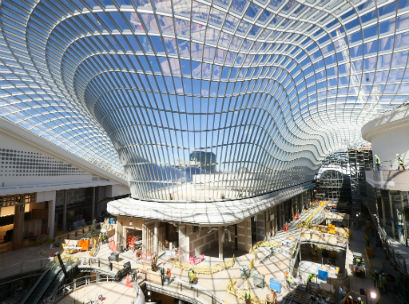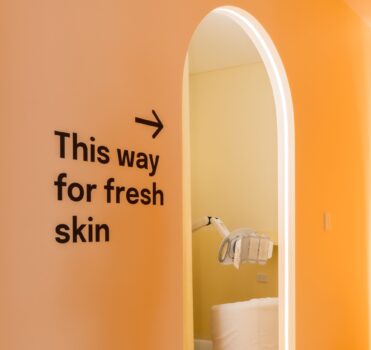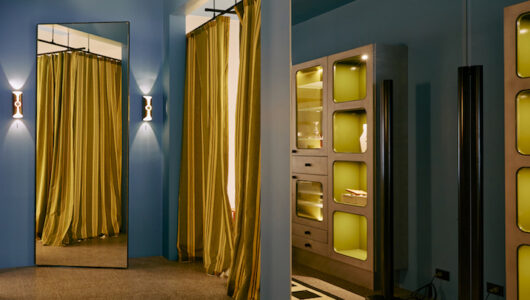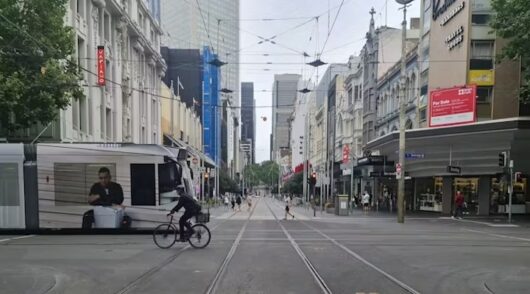 Retail landlord, Vicinity Centres, has re-affirmed its guidance at 18.6 to 18.8 cents per security, despite “pockets of weakness” in the retail sector.
Retail landlord, Vicinity Centres, has re-affirmed its guidance at 18.6 to 18.8 cents per security, despite “pockets of weakness” in the retail sector.
Total portfolio moving annual turnover (MAT) growth for the 12 months to March was 0.4 per cent, compared to 1.3 per cent to December 2016. All store types reported slower growth with “particular softness” in both the department store and discount department store categories. Excluding the impact of some of the more significant retailer administrations, Dick Smith, Payless Shoes and Pumpkin Patch, total portfolio MAT growth was 1.2 per cent.
Demand for beauty and wellness services and products remained solid with the general retail (+3.7per cent) and retail services (+7.2 per cent) categories experiencing strong MAT growth, including cosmetics (+9.2 per cent), hairdressing/beauty (+8.3 per cent) and optometrists (+6.0 per cent).
Apparel growth was lower at 1.2 per cent with men’s apparel (+7.0 per cent), fashion accessories (+3.8 per cent) and footwear (+3.3 per cent) continuing to show solid growth, while women’s apparel (-2.1 per cent) remains soft.
“While there are pockets of weakness in the retail trading environment, we believe that retail expenditure fundamentals remain sound,” said McNaughton. “Unemployment remains relatively low as are interest rates, house prices are generally still growing, and the Victorian and New South Wales economies are performing well. The Western Australian economy remains soft.”
Comparable specialty store moving annual turnover (MAT) growth up 1.1 per cent for the 12 months to March.
“Australian retail sales growth has been impacted by a moderating retail trading environment,” said McNaughton. “Lower retail prices, particularly in apparel, together with some high profile retailer administrations, and a number of anomalies including Easter and school holidays for Victoria and Queensland all occurring in April this year compared to March last year, also impacted retail sales growth in the period.”
During the quarter, Vicinity saw a flurry of retail activity, including commencing construction at The Glen, which saw total development costs reduced by $30 million to $460 million following the appointment of a residential developer and the sale of air rights.
Vicinity also opened The first Legoland Discovery Centre in the Southern Hemisphere at Chadstone shopping centre in Melbourne, which Vicinity said has operated at capacity patronage since opening.
“We increased our DFO outlet centre ownership, strengthened our capital position and achieved a number of important milestones in our development pipeline,” said McNaughton.
In April, Vicinity settled the acquisition of the remaining 25 per cent interest in DFO South Wharf in Victoria for $141.25 million and recently completed 1,100 space multi-deck car park at the centre.
“In January, Standard & Poor’s raised Vicinity’s credit rating to ‘A/stable’ in recognition of improved portfolio quality and balance sheet strength.,” said McNaughton.
The $666 million (Vicinity’s share: $333 million) development at Chadstone has seen annual visitations to the end of March up 14 per cent. Construction of the project has completed, with the majority of backfill tenancies to be opened by June 2017.
Vicinity said the $350 million (Vicinity’s share: $175 million) redevelopment at Mandurah Forum remains on track with the first retail stage set to open in the September 2017 quarter. On completion in mid-2018, the centre will be completely transformed and expanded to 64,500 sqm, consolidating it as the dominant retail destination in the trade area. The centre will introduce a new format David Jones store, along with a new Target store and refurbished Kmart and Coles stores.
Access exclusive analysis, locked news and reports with Inside Retail Weekly. Subscribe today and get our premium print publication delivered to your door every week.





